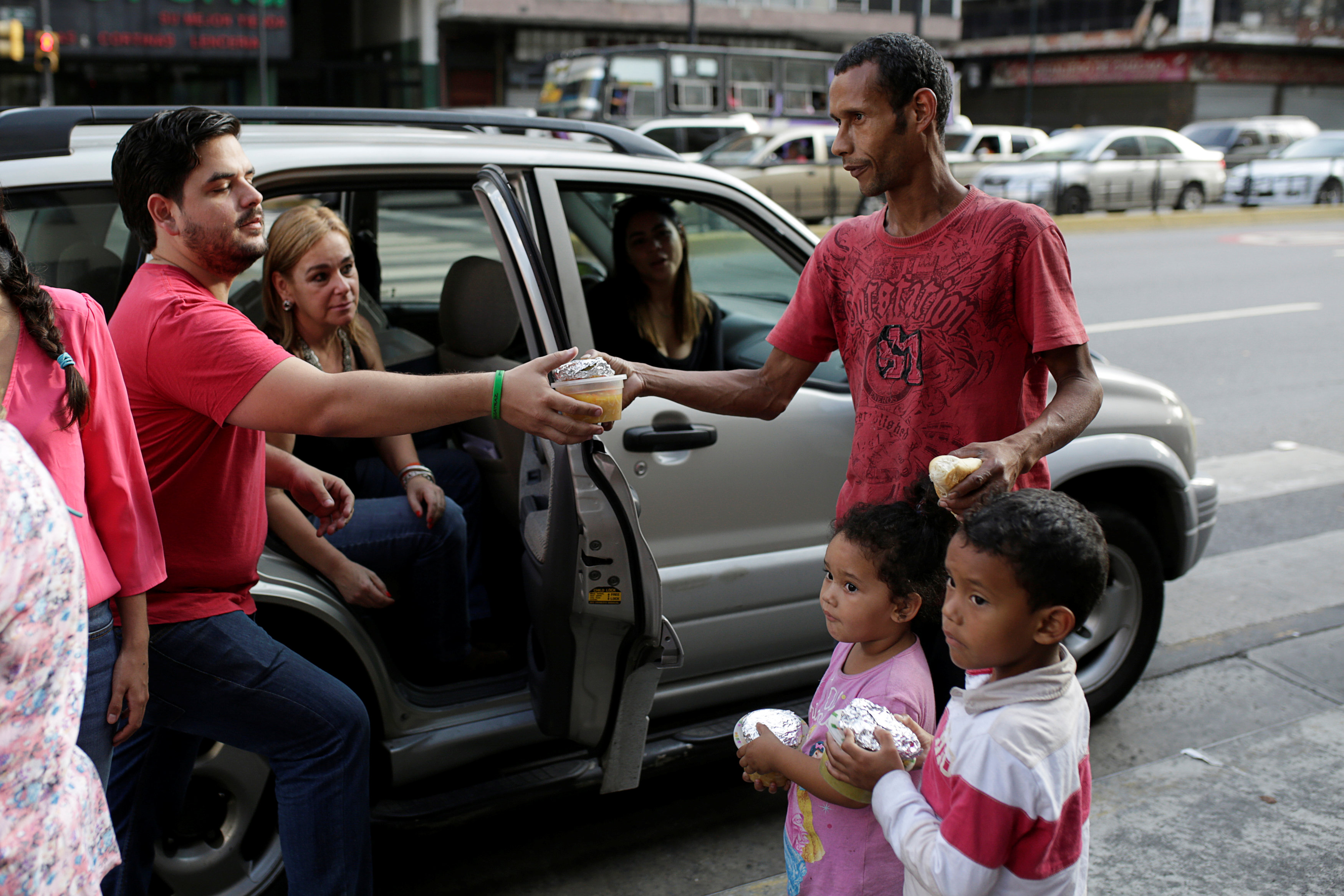
By Frank Jack Daniel and Matt Spetalnick
MEXICO CITY/WASHINGTON (Reuters) – A group of 14 nations on Thursday urged Venezuela to hold elections and release “political prisoners,” in a joint statement that kept open the option of seeking to suspend the South American country from the Organization of American States.
The statement, which Mexico’s Foreign Minister Luis Videgaray said was aimed at encouraging Venezuela to “re-establish democracy,” called for dialogue and negotiation to resolve a crisis in the oil-exporting country, which is suffering severe food and fuel shortages.
Suspending Venezuela from the OAS was a last resort, the nations said, and something that should be avoided unless other diplomatic efforts have been exhausted.
“We reiterate that inclusive and effective dialogue is the right path to achieve lasting solutions to the challenges faced by the Venezuelan people,” the statement said.
Venezuela has jailed around 100 government opponents it accuses of inciting violence and planning the overthrow of President Nicolas Maduro. Opposition activists and human rights groups say they are prisoners of conscience.
Venezuela’s election board in October suspended the opposition drive for a recall referendum against Maduro despite the country’s crushing economic crisis, the government’s unpopularity and public opinion in favor of a plebiscite.
Venezuela has also delayed until 2017 elections due in December for state governorships.
The declaration by the 14 nations called for the separation of powers, the rule of law and the establishment of an electoral calendar for postponed elections.
The group that signed the declaration, which includes regional powerhouses the United States, Mexico, Canada and Brazil, also called on Venezuela to recognize the legitimacy of the country’s national assembly, which has been defanged by Maduro’s government since the opposition won a majority in 2015.
Delcy Rodriguez, Venezuela’s foreign minister, accused Washington of leading the new push to isolate her country, which has been at loggerheads with the United States since the left-wing government of the late President Hugo Chavez.
“What are they trying? To wound Venezuela?” Rodriguez said on Twitter shortly before the statement was released. “We will denounce these actions country by country. We will not allow any aggression against our sacred homeland.”
The pressure by countries including several former Venezuelan allies follows a call by the head of the OAS to expel Venezuela if it does not quickly hold general elections, a move that would require the support of two thirds of the Washington based body’s 34 General Assembly members.
Luis Almagro, secretary general of the OAS and a former foreign minister of Uruguay, calls Maduro’s government a dictatorship. Earlier this month he said if Venezuela did not quickly comply it should be suspended for violating rules that require members to adhere to democratic norms.
In the past the OAS suspended Cuba and Honduras for breaking with democracy, but was criticized for not taking such action against right-wing dictatorships during the Cold War.
State Department spokesman Mark Toner said the United States was concerned by the state of democracy in Venezuela.
“We urge the Venezuelan government to comply with the constitution … and hold elections as soon as possible,” Toner told a briefing for reporters.
“We’re not pushing for Venezuela’s expulsion from the OAS at this time. We do think that the OAS is the appropriate venue to deal with the situation in Venezuela.”
However, a senior White House official said suspension from the regional body remained an option. Although numbers supporting Thursday’s declaration fell well short of the requirement to take strong action through the OAS, the official said the statement was a significant first step.
“If Venezuela continues down the path that it’s on, the notion that it’s going to belong to an organization committed to democratic principles doesn’t make much sense,” the official told Reuters, adding that the United Sates could also consider sanctions. “There are going to be ramifications,” the official said.
Mexico’s decision to openly take a stance on the situation in Venezuela is a shift from a usual preference by Latin America’s second-largest economy not to interfere in other countries’ affairs.
“We should not continue to be indifferent, we cannot continue to be indifferent,” Videgaray said earlier on Thursday, emphasizing that Mexico would respect Venezuela’s sovereignty and act according to international law and in agreement with the countries of the Americas.
Mexico’s change in tack may reflect an effort to have constructive relations with the administration of U.S. President Donald Trump, who has repeatedly antagonized Mexico.
“Having the Mexicans in the lead is beneficial for us in attracting additional support,” the White House official said.
(Additional reporting by Matt Spetalnick and Lesley Wroughton in Washington, David Ljunggren in Ottawa, Daniela Desantis in Asuncion and Girish Gupta and Diego Oré in Caracas; Editing by Matthew Lewis and Leslie Adler)












